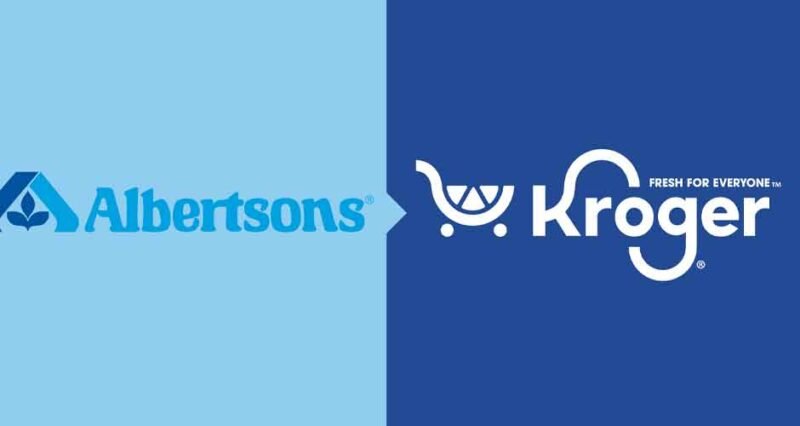
In recent business news, there has been speculation about a potential merger between Albertsons and Kroger, two prominent players in the grocery industry. This potential merger has caught the attention of industry experts and consumers alike, as it could have significant implications for the grocery market landscape. In this article, we delve into the details surrounding the Albertsons Kroger merger rumors, examining the potential benefits, challenges, and the impact it could have on consumers and the industry as a whole.
The Background of Albertsons and Kroger
Albertsons and Kroger are both well-established and highly recognized names in the grocery industry. Albertsons, founded in 1939, operates a vast network of supermarkets, including popular banners such as Safeway, Vons, and Jewel-Osco. With a strong presence across the United States, Albertsons has built a reputation for offering a wide range of products and services to meet the diverse needs of its customers.
On the other hand, Kroger, founded in 1883, is one of the largest supermarket chains in the country. It operates under various banners, including Kroger, Ralphs, Fred Meyer, and Harris Teeter, among others. Kroger has a significant market share and is known for its commitment to quality, affordability, and innovation in the grocery retail space.
The Potential Merger: Rationale and Benefits
While the merger between Albertsons and Kroger is still speculative, there are several reasons why such a union could be beneficial for both companies. One of the primary motivations behind a potential merger is the desire to create a more formidable competitor in an increasingly competitive grocery market. By combining their resources, expertise, and customer base, Albertsons and Kroger could potentially enhance their market position and better compete with other industry giants, such as Walmart and Amazon.
Additionally, a merger between Albertsons and Kroger could lead to significant cost savings and operational efficiencies. Through the consolidation of distribution networks, supply chains, and administrative functions, the merged entity could streamline operations and reduce redundant expenses. This, in turn, could allow the combined company to invest more in areas such as technology, e-commerce capabilities, and customer experience enhancements.
Challenges and Considerations
While the potential benefits of an Albertsons Kroger merger are evident, there are also challenges and considerations that need to be addressed. One of the primary challenges will be navigating the regulatory landscape. Mergers of this scale often face scrutiny from antitrust authorities, who assess the potential impact on competition and consumer welfare. Any merger between Albertsons and Kroger would likely undergo a thorough regulatory review before receiving approval.
Another consideration is the integration of two large and complex organizations. Merging two companies with different corporate cultures, systems, and processes can be a complex undertaking. Ensuring a smooth integration will require careful planning, effective communication, and strong leadership to align the teams and maximize the synergies between the two organizations.
Impact on Consumers and the Industry
If a merger between Albertsons and Kroger were to occur, it would likely have a significant impact on consumers and the grocery industry as a whole. On the consumer side, there could be both positive and negative effects. On one hand, a merged entity could potentially leverage its increased scale and resources to offer a wider selection of products, improved pricing, and enhanced services to customers. On the other hand, some consumers may have concerns about reduced competition and the potential for fewer choices in the market.
In terms of the industry, a merger between Albertsons and Kroger could set off a chain reaction of strategic moves by other grocery retailers. Competitors may explore their own mergers or acquisitions to maintain a competitive edge, leading to potential consolidation within the industry. This could reshape the competitive landscape and influence the dynamics of the grocery market for years to come.
Conclusion
While the rumors of an Albertsons Kroger merger continue to circulate, it is important to note that no official announcement or confirmation has been made at this time. The potential merger between these two grocery giants presents both opportunities and challenges for the companies involved, as well as for consumers and the industry as a whole. As the situation evolves, it will be fascinating to see how these industry leaders navigate the complexities and make strategic decisions that shape the future of the grocery market.

